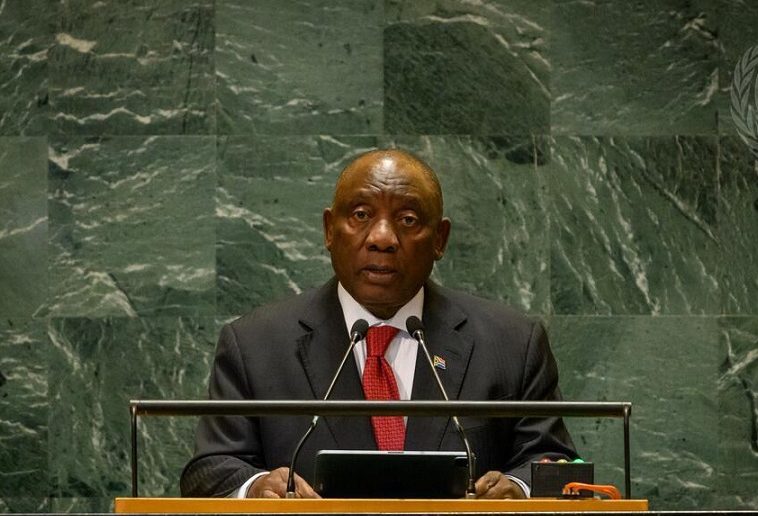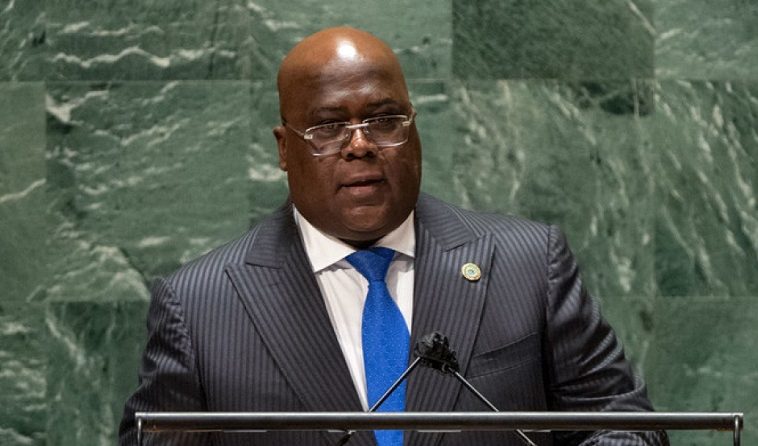At the 79th session of the United Nations General Assembly (UNGA) held in September 2024, in the global pursuit of the Sustainable Development Goals (SDGs), world leaders came together to discuss and strategize on accelerating progress towards achieving these 17 goals by 2030. The session was marked by the “Summit of the Future,” a high-profile event emphasizing the urgent need for enhanced international cooperation to tackle the pressing challenges of our time, including climate change, poverty, inequality, ongoing conflicts, and global health crises. As we reflect on the outcomes of this gathering, a pertinent question arises: Where does Africa, particularly West Africa, stand in this global agenda?
In his address to the Assembly, Nigeria’s Vice President, Senator Kashim Shettima, standing in for President Bola Ahmed Tinubu, articulated the unique challenges and aspirations of Africa. He expressed that while Africa has made remarkable strides in democratic governance over the past two decades, the continent’s progress remains fragile.
This fragility is exemplified by the recent unconstitutional changes of government in the Sahel region, which have threatened the democratic fabric of affected nations. According to the African Development Bank (AfDB), over 50% of African nations have experienced at least one coup since 1990, highlighting the fragility of democratic institutions
Vice President Shettima highlighted the profound link between democracy and economic development, asserting that the absence of sustained economic progress can undermine democratic institutions. This observation is particularly relevant in Africa, where the youth population is burgeoning.
The United Nations estimates that by 2050, Africa’s youth population will reach 945 million, nearly double the 2020 figure of 512 million. The demands for employment, education, healthcare, and secure environments are intensifying. The disillusionment of citizens, exacerbated by these unmet needs, poses a significant threat to the legitimacy and stability of democratic governments across the continent.
The Debt Burden and Economic Challenges
One of the central themes of Vice President Shettima’s address was the crippling impact of global debt on developing nations, particularly in Africa. According to the International Monetary Fund (IMF), sub-Saharan Africa’s debt-to-GDP ratio stood at 56.9% in 2023, a significant increase from the 2010 figure of 28.6%. He pointed out that the escalating debt burden is eroding the capacity of governments to meet the basic needs of their citizens, thereby fueling social unrest and undermining confidence in democratic governance.
This alarming trend reveals the urgency for global financial reforms that would provide debt relief and create a more equitable financial system. The World Bank reported that in 2023, Africa spent an estimated $64 billion on debt servicing, money that could otherwise have been allocated to critical areas such as healthcare, education, and infrastructure.
Moreover, Vice President Shettima emphasized the adverse effects of trade barriers and protectionist policies on the economic prospects of African nations. The World Trade Organization (WTO) reports that Africa accounts for less than 3% of global trade, a figure that has stagnated due to restrictive trade practices and the continent’s limited industrial capacity. To overcome these challenges, Africa must advocate for a rules-based, non-discriminatory, and open multilateral trading system that fosters inclusive growth and development.
Climate Change: A Pressing Challenge for Africa
Africa’s vulnerability to climate change was another critical issue raised during the UNGA. The Vice President lamented the recent devastating floods in Nigeria, which affected large swathes of the country, including Maiduguri, one of its largest cities. The World Bank has reported that between 2010 and 2020, climate-related disasters have caused over $14 billion in damages across sub-Saharan Africa, with the 2022 floods in Nigeria alone displacing over 1.3 million people and resulting in 600 fatalities. These floods, which led to the loss of lives and property, are stark reminders of the continent’s susceptibility to climate-related disasters.
In light of these challenges, Vice President Shettima reaffirmed Nigeria’s commitment to the global climate agenda, including the Paris Agreement’s goals and the African Union’s Agenda 2063. He called for a unified global response to climate change, stressing that no nation is immune to its impacts. The Vice President also highlighted the importance of securing climate finance for developing countries, particularly in Africa, to support mitigation and adaptation efforts. The $100 billion climate finance pledge by developed countries, which has yet to be fully realized, was cited as a critical resource that must be mobilized to help vulnerable nations address the adverse effects of climate change.
The Israeli-Palestinian Conflict: A Call for Justice
Turning to the broader global context, Vice President Shettima addressed the ongoing Israeli-Palestinian conflict, emphasizing Nigeria’s support for a two-state solution. He criticized the international community’s failure to resolve this protracted conflict, which has been a source of instability and suffering in the Middle East for decades. The Vice President’s call for justice and the recognition of the Palestinian people’s right to independence resonated with the Assembly’s broader discussions on peace and human rights.
Africa’s Place in Global Governance
A recurring theme in Vice President Shettima’s address was the need for reform in global governance structures, particularly the United Nations Security Council. He argued that Africa deserves a permanent seat on the Security Council, reflecting the continent’s growing geopolitical significance and its contributions to global peace and security. This call for reform aligns with broader demands from developing nations for a more representative and inclusive global governance system that recognizes the diverse voices and interests of all regions.
For Africa, the path forward lies in strengthening democratic institutions, securing economic and climate resilience, and ensuring that the continent’s voice is heard in global decision-making forums. As Vice President Shettima aptly noted, the success of the Summit of the Future and the broader UN agenda will be measured by the tangible outcomes it delivers for the world’s most vulnerable populations, particularly in Africa.




